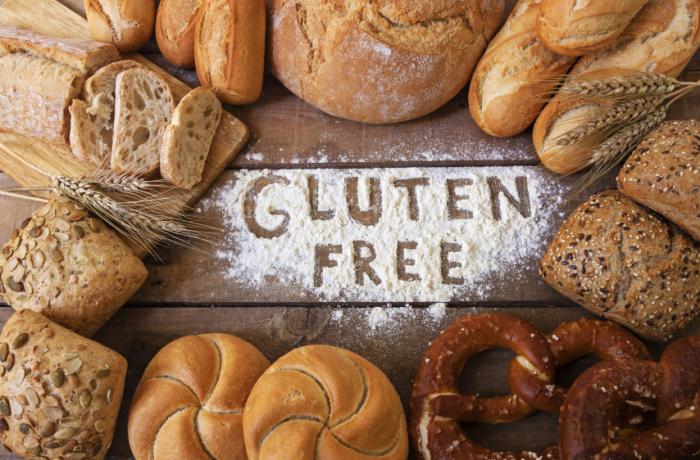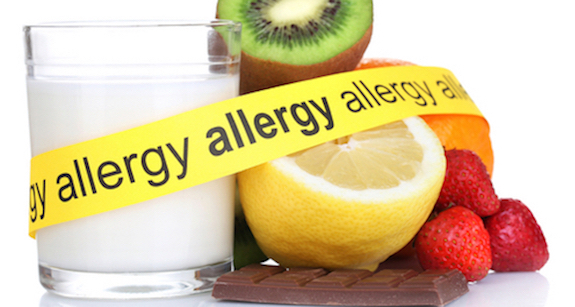Many people find that they start to suffer from food intolerance as they grow older. This is partly due to long-term exposure to an irritating substance and partly due to the fact that the digestive system becomes less efficient with age. Eating foods to which you are intolerant is like continually stubbing your toe – the discomfort will become worse over a period of time and eventually the damage can become permanent.

What is food intolerance ?
A food intolerance should not be confused with an allergy. An intolerance occurs when the body finds a substance difficult to cope with, whereas an allergy to a substance is an active fight that involves the body’s immune system.
Although there are many different types of food intolerance, some foods are more likely to cause intolerances than others. They include soya products, caffeine, chocolate, orange juice, tomatoes and food additives. Two foods that commonly cause intolerances are cow’s milk and wheat (or other grains).
If you have an intolerance to cow’s milk, this means that your body finds it difficult to digest lactose, the sugar found in milk. As a result, lactose moves through the intestines undigested and when it reaches the colon, bacteria start to ferment it, producing gas. The result may be abdominal discomfort, flatulence and diarrhoea.
An intolerance to wheat and grains means that you have difficulty digesting the protein gluten. Gluten intolerance can cause weight loss, loss of appetite, abdominal cramps and poor vitamin and mineral absorption from food.
Detecting food intolerances
You may already suspect that you have an intolerance to a particular food, simply because you suffer discomfort when you consume it. To confirm that this is the case, try eliminating the suspicious food for a month before re-introducing it to your diet. Keep a daily diary of your symptoms and note whether they return when you re-introduce the food. Alternatively, you can seek the professional advice of a doctor, dietician or naturopath.
Dealing with food intolerances
There is no cure for food intolerance except simply avoiding the relevant foods. If you identify the foods that you cannot tolerate, you can look for alternatives that satisfy your nutritional needs and personal tastes. For example, if you cannot tolerate orange juice, drink apple juice instead. It may not even be necessary to exclude foods completely. For example, if you have an intolerance to cow’s milk you may still be able to tolerate a small amount of milk in one cup of tea a day.

If you are lactose intolerant try to avoid dairy products, and check food labels for the presence of lactose. Substitute soya milk for cow’s milk. Women who need to exclude dairy products should ensure that they receive enough calcium from other sources to maintain healthy bones. Live yogurt is a good calcium source for people who are lactose intolerant (the bacteria present in the yogurt helps to break down lactose). Gluten intolerant people should avoid wheat, rye, and barley. Switching to corn, rice, soya, and potato starch can be helpful.
Reading the ingredient information on food labels and knowing which foods trigger the allergies, intolerance or asthma are the best defenses.
Asking about ingredients and cooking methods when taking food outside of the home can help to avoid known problem foods. When eating away from home, it is important to explain your situation and special needs to your host or food server. If necessary, ask to speak to the chef or manager of a café or restaurant.
If in doubt, play it safe and stick to plain foods such as grilled meats or prepare and carry foods you have prepared yourself. Always have a rapid-response plan and if you are, or someone else is, experiencing a severe food-intolerance reaction, call immediately for medical support or an ambulance.
|
Common Symptoms
You may have a food intolerance if you suffer from any of the following symptoms on a regular basis:
- Anxiety
- Depression
- Fatigue
- Headaches
- Skin disorders
- Asthma
- Joint or muscle pain
- Rheumatoid arthritis
- Ulcers (mouth or stomach)
- Water retention
- Stomach bloating
- Nausea
- Vomiting
- Constipation
- Diarrhoea
- Irritable bowel syndrome

If you are suffering from unusual digestive complaints such as nausea, diarrhea or persistent indigestion, seek a diagnosis from your doctor before you make any dietary changes. A full elimination diet should be supervised by a medical professional.
Disclaimer
The Content is not intended to be a substitute for professional medical advice, diagnosis, or treatment. Always seek the advice of your physician or other qualified health provider with any questions you may have regarding a medical condition.



